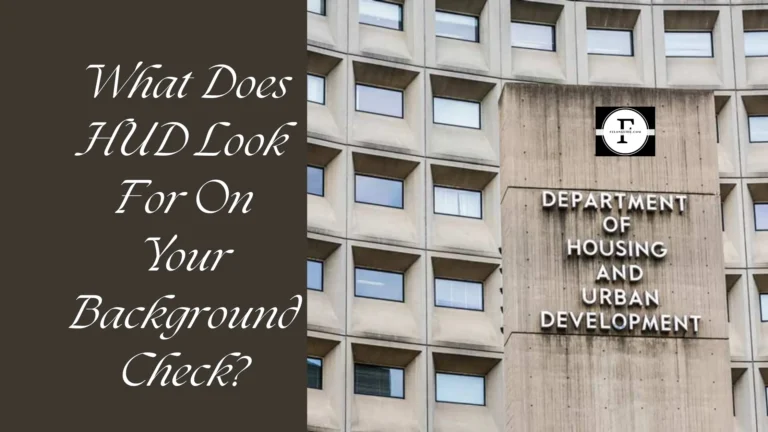Is It Illegal To Deny Housing To A Felon?
Is it illegal to deny housing to a felon? Usually, refusing housing based on a criminal record is not a crime unless the landlord applies a blanket ban. However, most other forms of discrimination are illegal and socially unacceptable. Many landlords routinely reject applicants based on a tenant’s past serious criminal record. There is some information that is illegal to withhold, even if you do get some more details
When Is It Illegal To Deny Housing To A Felon 2024?
Nondiscrimination in housing is covered by the Fair Housing Act (FHA). The Fair Housing Act protects the status of members of certain groups.
No landlord may refuse to rent to a tenant because of race, sex, color, handicap, national origin, religion, or familial status. As you can see, criminals are not a safe group, but there are some important details you need to know about race and disability considerations, which have far-reaching implications.
Disability Discrimination
It may be illegal to deny residency to felons if they are recovering drug addicts because the substance abuse conditions would be classified as a disability. To whom does this apply? Offenders who have had a criminal conviction directly related to their substance use disorder may be protected under the FHA.
The disability must be documented and the offender must undergo a treatment program or adhere to a treatment plan. Although landlords must make individual assessments, they may still reject applicants with a substance use disorder if their criminal record indicates that they may harm the landlord’s property or others.
Race Discrimination
The federal government recognizes that pervasive bias in the criminal justice system means that certain minority groups are more likely to be convicted of crimes and receive harsher sentences.
With policies that exclude all offenders, landlords may be inadvertently committing a form of discrimination known as disparate impact discrimination. Because blacks and Hispanics experience disproportionately higher arrest and incarceration rates than other groups, barriers to housing due to criminal background checks may be discriminatory to members of these groups.
What does this mean for renters?
Landlords can’t have a tenant acceptance policy that includes a blanket ban on anyone with a criminal record. They can’t just say we don’t rent to felons. Landlords cannot reject applications simply because a tenant answers yes to the criminal history question on the application form.
While landlords can still use felons’ records in the tenant screening process, they need to determine which felonies pose an evidence-based threat to their business and apply this policy to all applicants equally. Apply An eviction based on a felon’s record is necessary to satisfy a landlord’s substantially legitimate nondiscrimination interest
For example, a landlord could specify:
- No violent or drug-related felonies
- No sex offenders
- No felony convictions in the last 5 years
- No felonies against landlords or rental properties
- No convictions involving metal theft, or other property damage.
- No arson convictions
A landlord who applies these exclusions to every applicant will do the job properly. Landlords must also conduct an individualized assessment of an applicant’s criminal background and review any mitigating information before denying a rental application if they have been denied housing. So you are entitled to know why your application is rejected.
If a landlord tells you they don’t rent to felons or doesn’t conduct an individualized assessment of your criminal history. So they violate the Fair Housing Act. If you are black or Hispanic, you can be sued for impact discrimination.
When the landlord rejected your request, he should have informed you of his decision in writing. A notice of rejection under the Fair Housing Act must state the reason for the rejection. It would help if you informed the landlord of your right to get more information or request a meeting to discuss the refusal within 14 days.
The Housing Center provides a free template letter that you can download and send to a landlord to appeal a denial.
To get the letter go to https://www.thehousingcenter.org/wp-content/uploads/2019/04/Appealing-Criminal-Background-Denial-for-Housing-Form-Letter.pdf
How Does Fair Housing Legislation Help Other Felons?
Although up may not be a protected group through the laws of the Fair Housing Act, the fact that landlords cannot use a blanket ban can help all offenders have a better chance when applying for housing. Because landlords need to be able to demonstrate that the disqualification standards in their tenant screening policy are necessary for safety or business reasons, your crime may not be disqualifying at all.
Fair Housing Act also allows you to exercise your right to receive more information about your rejection if you have been rejected. Most offenders simply accept rejection instead of knowing that they can challenge it.
Can You Deny A Tenant For Criminal History?
For landlords wondering if it is legal to discriminate against felons for housing? The answer is yes. Landlords can use criminal history to reject unscrupulous tenants. It is your right to keep your business safe by leaving tenants who may pose a threat to your safety, the safety of other tenants, or your property. However, you need to make sure that your tenant screening policy is legal and that you apply the same criteria to every applicant.
Your screening policy must comply with the Fair Housing Act and guidance issued by the Department of Housing and Urban Development (HUD). HUD even suggests that landlords not use criminal history when making housing decisions because criminal history is not a good predictor of a tenant’s future behavior.
Landlords also need to be aware of state or city laws that prohibit or restrict the use of criminal history in screening tenants. It’s a good idea to have your screening policy drafted by a local attorney who specializes in landlord/tenant law to protect yourself from costly discrimination lawsuits.
Summary
Landlords can legally discriminate against felons until then. Unless their rental screening policy includes a complete ban on applicants with a proven track record. or does not create disparate effects. The screening policy should clearly state the criteria for ineligibility. And every applicant must apply consistently.
Offenders with disabilities can be protected from substance abuse under the Fair Housing Act. Individuals from minority groups may face disparate consequences from landlords who fail to conduct individualized assessments during the tenant screening process if the conviction was related to their drug use.







